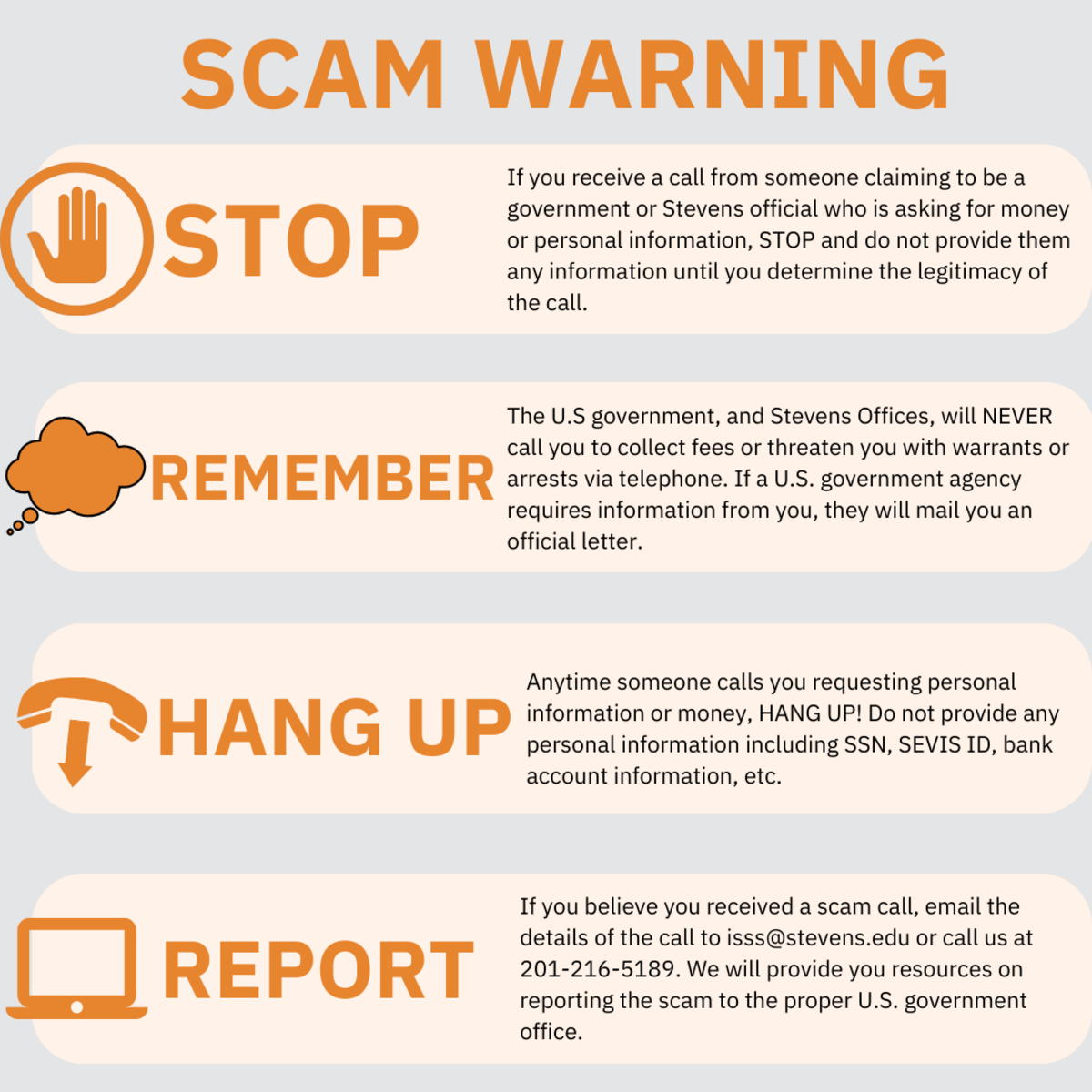Scam Alerts
Scam calls, emails, and text messages targeting international students are on the rise. Please stay alert and cautious to avoid falling victim to scams.
Please be aware and cautious of "scam calls". A scam call is a malicious call with the intention of illegally acquiring money or personal information from you. The caller may pretend to be from a government agency such as DHS, USCIS, or the IRS. They might already have information such as your name, address, and visa category. If you are not familiar with these types of calls, it can be very alarming and scary to receive one. A natural reaction when you receive such a call is to want to comply with demands of money or personal information to resolve the issue. If you do fall victim to a scam, it is unlikely that you will get your money back. "Scam emails" or "scam text messages" also require caution on your part.
Reminders for handling a scam call, email, or text message:
If you receive a call demanding personal information, hang up immediately
Remember, government officials will never, under any circumstances, request payment from you in the form of gift cards of any kind (eBay gift cards, Apple gift cards, Visa or American Express gift cards, Amazon gift cards, etc.)
Remember, government officials will never threaten you or ask you for payment over phone, email, or text.
If payment is required from a US federal agency, such as USCIS, they will mail a letter on official stationery requesting payment. (You can bring these letters to our office for assistance.) How to report a call from a scammer:
If you ever receive a scam email or phone call, report it to the Federal Trade Commission.
If you are not sure if an email or phone call is a scam, contact ISSS for help.
If you receive a suspicious email or call, claiming to be USCIS, you can contact the webmaster at uscis.webmaster@uscis.dhs.gov. (USCIS will review the emails received and share with law enforcement agencies as appropriate.
Common F-1 and J-1 Student Scam:
The Form AR-11 (Change of Address Form) scam is a common scam that targets international students. International students (F-1 and J-1) DO NOT use the AR-11 form to report their change of address. This is your first indication that this is a scam call! Do not engage the caller or hang up immediately.
As a reminder, F-1 and J-1 students report changes in address to the ISSS Office. ISSS then updates your address in SEVIS. If you are engaged in post-completion OPT work authorization or the STEM OPT extension, you can also update your address on your own in the SEVP Portal.
Details of the AR-11 Scam:
The caller claims that you failed to file the Form AR-11 (Change of Address Form) and that you have a complaint lodged against you.
The caller threatens deportation or legal action or demands money or gift cards to "fix the issue."
The caller often has some of your personal details, like your address, visa status, school you attend, etc. that they have gathered from public sources or social media.
The caller is using software to "spoof" the phone number to make it appear that they are calling from an official government phone number.
Employment Scams
Resources for More Information
Federal Trade Commission “Avoiding Scams” and “Common Types of Scams”
U.S. Citizenship and Immigration Services (USCIS) “Common Scams”, “Avoid Scams” and “Report Immigration Scams”
